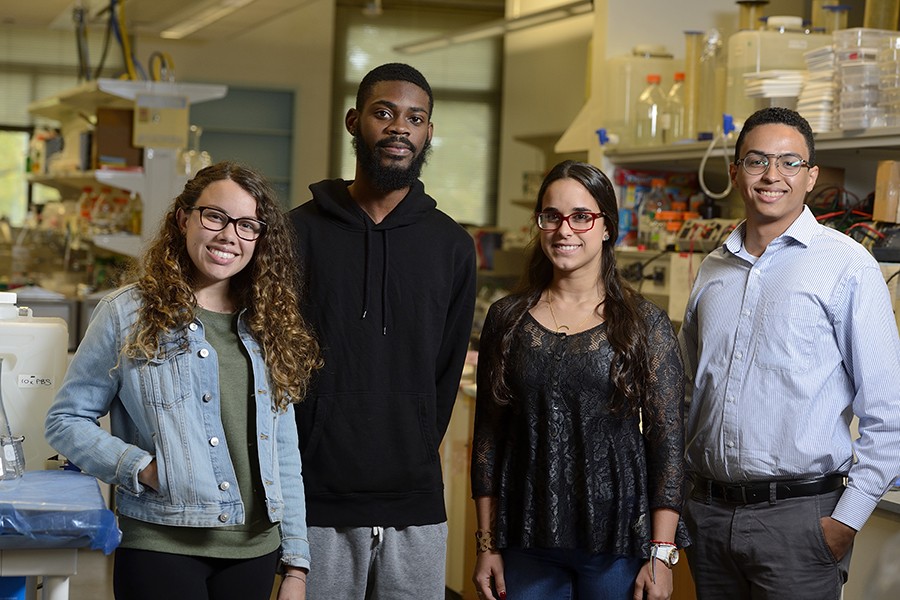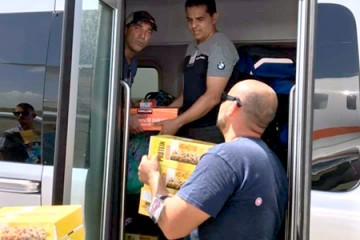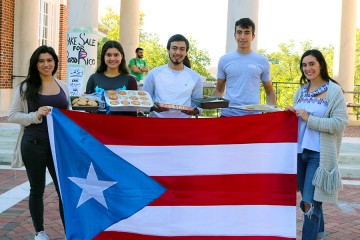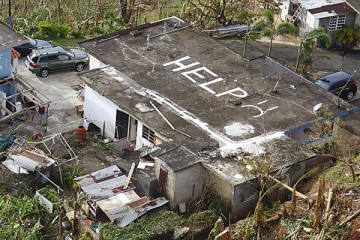Four days into the fall semester at the University of Puerto Rico, Hurricane Irma blew through, causing enough damage to close the school for a week. Less than two weeks later, Hurricane Maria struck the island, bringing with it winds of 160 miles per hour and more than two feet of rain.
When Carla Quinones Jurgensen, a junior at the university, arrived on the Rio Piedra campus with other student volunteers to clear debris, they found university buildings severely damaged. Labs had been flooded and needed to be relocated. Several buildings had lost their roofs.
"It was horrible," she said. "All the trees were on the buildings, and the leaves were everywhere. We have a building that doesn't have a ceiling."
Jurgensen wondered how and when her university could reopen—and what would become of her studies. So when she received an email inviting her to return temporarily to Johns Hopkins University, she jumped at the opportunity.
Jurgensen had spent 10 weeks this past summer at Johns Hopkins through the Research Experience for Undergraduates program. Joel Schildbach, the program's director and vice dean for undergraduate education at the university's Krieger School of Arts and Sciences, contacted four REU participants from the Caribbean—Jurgensen, a student from the University of the Virgin Islands-St. Thomas, and two from the University of Puerto Rico-Mayaguez—to check on their safety after the storms. When he learned that their universities would be closed indefinitely—or, in the case of the University of the Virgin Islands, operating online and with limited resources—he invited the students back to campus to resume their summer research.
"It all came together pretty quickly with the help of a lot of people," Schildbach said. "They are all special people and were in an ugly situation, and we were able to work it out."
Schildbach secured temporary student housing by working with Lori Citi in the university's study abroad office. Natalie Strobach, the Krieger School's director of undergraduate research, scrambled to find plane tickets for the four students. She also made trips to Bed Bath & Beyond for dorm basics like towels and toiletries.
And the students' summer mentors—Michael McCaffery, director of the Integrated Imaging Center; Trina Schroer and Haiqing Zhao of the Department of Biology; and Steven Rokita in the Department of Chemistry—welcomed the students back without hesitation.
Also see
"I was half expecting some resistance," said Schildbach, who used approximately $10,000 in reserve funds from the summer program to cover the costs. "But everyone said 'go for it.'"
For Lewis Bennett, a native of St. Thomas; and Carolina Gracia Diaz, who is from Puerto Rico, the opportunity to return to Hopkins was invaluable. With the help of Strobach, both seniors were able to take the GRE and meet deadlines for their graduate school applications.
Jurgensen continued her work on thyroid enzymes in Rokita's lab and prepared to present a paper at the 2017 Annual Biomedical Research Conference for Minority Students in Phoenix later this month. All of the students were able to send care packages—including much-needed items such as citronella and batteries—to their families back home.
When the students got together, they swapped stories about what it was like in the aftermath of the storms. They talked of waiting hours to use a funeral home's landline to call family in Florida, of the steady mechanical drone of generators that run during the day, of finding shelter at neighbors' houses, of eating canned food and drinking from a chlorinated swimming pool.
"It's just been really rough," said Bennett, who returned home this week. "I experienced two Category 5 hurricanes … and Joel was able to arrange all of this to help me. I consider him somebody important to me in my life. I'm really grateful to him and Natalie for all they are doing for us."
Posted in University News, Student Life
Tagged hurricanes











